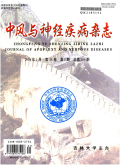中风与神经疾病杂志2024,Vol.41Issue(3):215-218,4.DOI:10.19845/j.cnki.zfysjjbzz.2024.0041
基于认知行为疗法的自我睡眠管理改善慢性失眠的临床初探
A preliminary clinical study on sleep self-management based on cognitive-behavioral therapy improving chronic insomnia
摘要
Abstract
Objective To preliminarily explore the clinical effects of sleep self-management based on cognitive-behavioral therapy for insomnia(CBT-I)in improving chronic insomnia.Methods We enrolled 175 patients with insom-nia who visited the Outpatient Department of Sleep and Psychology of the Fifth People's Hospital of Chongqing from Sep-tember 2023 to November 2023.All the patients received CBT-I for 2 weeks,followed by a 2-week sleep self-management plan.Sleep quality and the severity of insomnia were evaluated using a sleep diary,the Pittsburgh Sleep Quality Index(PSQI),and the Insomnia Severity Index(ISI).Mental status was assessed using the Beck Anxiety Inventory(BAI)and Beck Depression Inventory(BDI).Changes in the above indicators before and after treatment were compared.Results CBT-I-based sleep self-management had no significant effect on total sleep duration(P>0.05),but significantly shortened sleep latency(P<0.001),significantly increased the sleep quality score and sleep efficiency(P<0.001),signifi-cantly reduced the number of awakenings and awakening time(P<0.05),and significantly improved daytime mental state(P<0.05)after 2 weeks of treatment.After 2 weeks of sleep self-management,the PSQI and ISI scores were significantly decreased(P<0.001),and the BAI and BDI scores were significantly decreased(P<0.001).Conclusion Sleep self-management based on CBT-I can significantly improve the sleep quality and mental state of patients with chronic insomnia,providing a new execution strategy for clinical institutions lacking standard CBT-I service.关键词
失眠/认知行为疗法/自我管理/焦虑/抑郁Key words
Insomnia/Cognitive-behavioral therapy/Self-management/Anxiety/Depression分类
医药卫生引用本文复制引用
龚珏如,黄庆玲,邓平,刘海深,高东..基于认知行为疗法的自我睡眠管理改善慢性失眠的临床初探[J].中风与神经疾病杂志,2024,41(3):215-218,4.基金项目
国家自然科学基金面上项目(81971241) (81971241)

